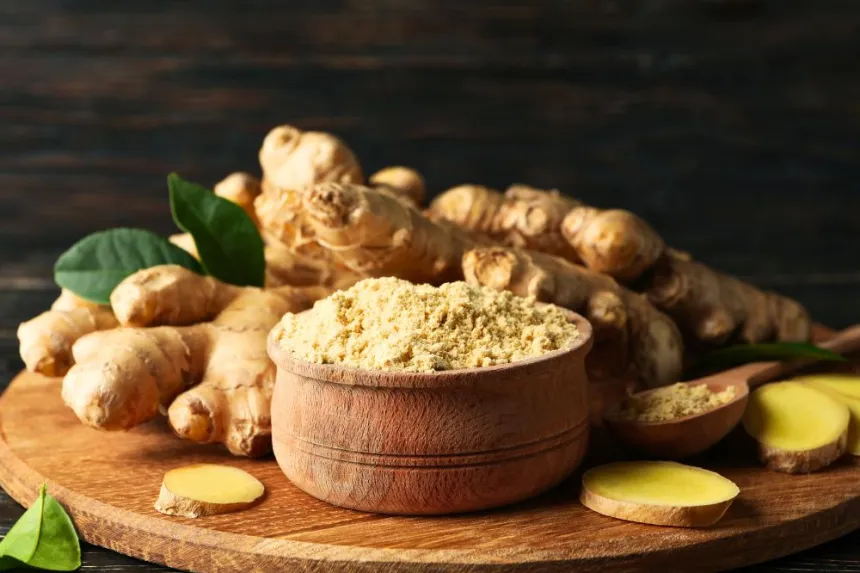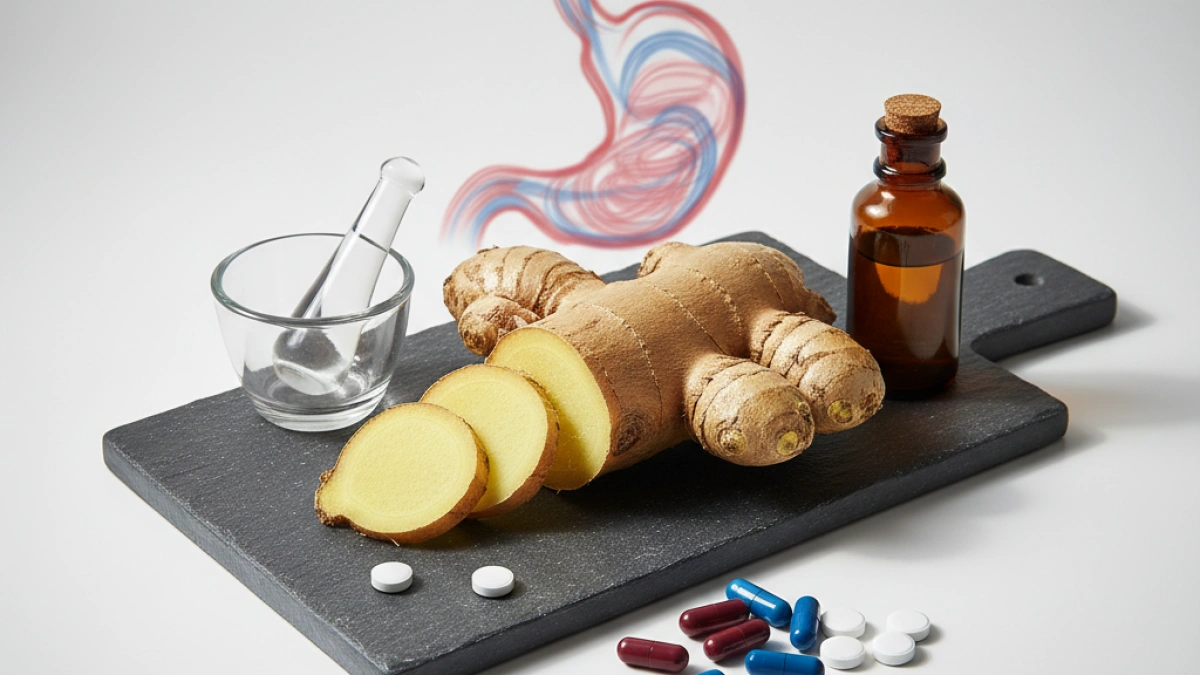Benefits of ginger for health and overall well-being.

Ginger is a common ingredient in many kitchens around the world, but its use goes beyond being a simple flavoring agent. This rhizome, known for its medicinal properties, has been used for centuries in traditional medicine. In this article, we will explore the various benefits that ginger can bring to our health and overall well-being.
Anti-inflammatory and Antioxidant Properties
Ginger contains bioactive compounds, such as gingerol, which have powerful anti-inflammatory and antioxidant properties. These antioxidants help combat cellular damage and may reduce the risk of chronic diseases, such as heart disease and cancer. Additionally, ginger's anti-inflammatory action may be beneficial for people with conditions like arthritis, alleviating pain and swelling.
Improves Digestion
One of the most well-known uses of ginger is its ability to improve digestion. This rhizome can help reduce inflammation in the gastrointestinal tract and promote saliva production, making it easier to digest food. Consuming ginger can help relieve common digestive issues such as indigestion, gas, and nausea. It is especially effective in treating morning sickness during pregnancy and nausea caused by chemotherapy.
Relief from Nausea and Dizziness
Ginger is a widely recognized natural remedy for combating nausea and dizziness. Various studies have confirmed its effectiveness in treating these symptoms, both in pregnant women and in individuals who suffer from motion sickness. Consuming ginger in the form of tea or capsules can help effectively alleviate these discomforts.
Immune System Support
Ginger can also strengthen the immune system. Thanks to its antimicrobial properties, ginger may help combat infections and colds. Including ginger in the diet, especially during seasonal changes, can be an effective way to prepare the body to fight off viruses and bacteria that thrive in various times of the year.
Blood Sugar Regulation
Preliminary research has indicated that ginger may help regulate blood sugar levels. Its consumption has been associated with improvements in insulin sensitivity and lower fasting glucose levels. This makes it a potential ally for people with type 2 diabetes, although it is always advisable to consult a healthcare professional before making changes to the diet.
Cardiovascular Benefit
Ginger may also be beneficial for cardiovascular health. Some studies suggest that regular consumption of ginger may decrease LDL cholesterol (the "bad" cholesterol) and help lower blood pressure. These effects can significantly contribute to heart health, highlighting the importance of including ginger in the daily diet.
How to Consume Ginger?
There are several ways to incorporate ginger into your daily diet. It can be used fresh in salads, added to smoothies, brewed as tea, or used as a spice in cooking. It is also available in powder, capsule, or extract form, providing different options to take advantage of its benefits.
In conclusion, ginger proves to be a powerful ally for our health and well-being. Incorporating it into our diet can offer a range of significant benefits, from improving digestion to boosting the immune system.
If you want to stay informed about health and wellness topics, I invite you to read more news like this on my blog. Don't miss it!











































